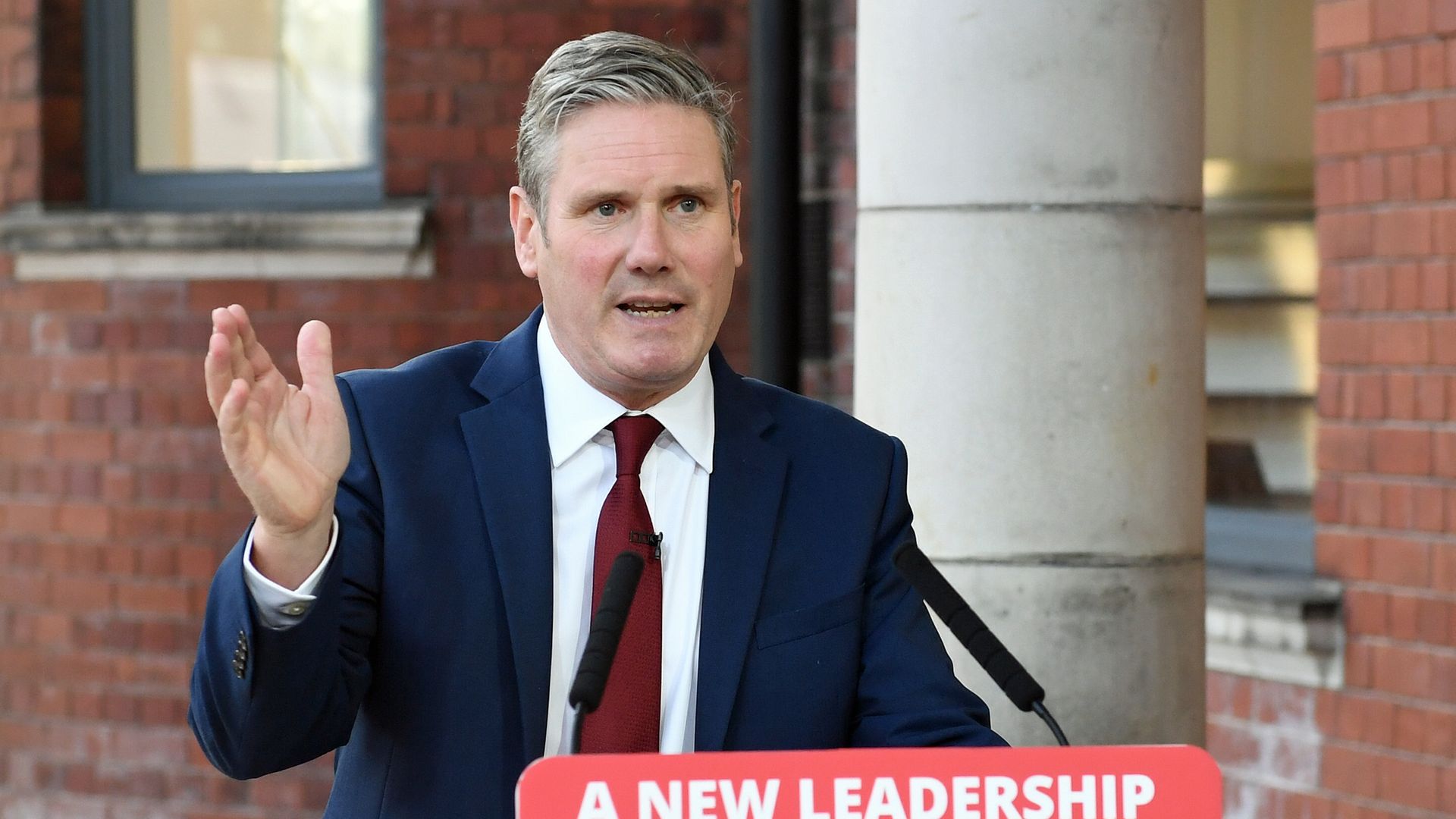
Labour activist MARTYN SLOMAN on Keir Starmer’s first party conference speech as leader.
As a seasoned and highly professional politician, Keir Starmer will have recognised that not being able to hold the traditional Labour Party Conference had many advantages. True, it denied him the images of cheering supporters transmitted as the first item on the evening news. Equally, however, it meant that there were no fringe meetings. These are gatherings, often very small, that give enthusiasts the chance to explore and reinforce whatever arcane aspect of politics excites them.
At this stage in his leadership, Keir Starmer would have found such events a thorough nuisance, though he is far too clever to say so. Instead he would have referred to the vigour and energy of debate that has always characterised this great movement of ours.
The virtual conference, ‘Labour Connected’, meant that any announcements in his leader’s speech could not attract an immediate high profile challenge – however hard Len McCluskey tried. Keir Starmer therefore used the opportunity not only to contrast his life story and competence with that of prime minister, Boris Johnson, but also to stress his political distance from Jeremy Corbyn. Significantly, his attitude to patriotism was presented as one of the defining differences with his predecessor as Labour Leader.
What he actually said in this leader’s speech was innocuous but important: “we love this country as you do. This is the country I grew up in and this is the country I will grow old in.” In an earlier interview that day he went further: “We should not be so shy, we should be proud of being patriotic, and in many senses that reflects the values of the Labour Party”. He underlined this by stating that he watched the Queen’s Christmas Day speech on television.
Now this may have succeeded in its main purpose: distancing the Party from Jeremy Corbyn’s position on Russia and Jeremy’s inane suggestion that information on the substance used in the Salisbury poisoning should be shared with the perpetrators. Our citizens have a right to expect that national security should be protected. What is more questionable is the extent to which a straightforward declaration of patriotism addresses what has become known as the ‘red-wall problem’: the alienation of many traditionally patriotic working-class voters in areas with a history of support for Labour.
A starting-point is a recognition that the reasons for such alienation are real, but are complex. The attractive sought-after jobs in the modern knowledge–led and service-driven economy will no longer be based in traditional manufacturing. We are not going to rebuild the steel industry, still less coal, and, for the time being, ‘the green new deal’ is little more than a handy slogan to be deployed at party meetings.
Having worked for eighteen years in the coal industry, I knew the Blyth Valleys, the Mansfields, and the Bolsovers well. My view is that any resentment goes well beyond the view that such communities will miss out on good jobs delivered through future economic growth. There is also a feeling that today’s left-of-centre progressives are dismissive of many of the values that bind such communities together. Such feelings will not be easy to overcome, but, in fairness, Keir Starmer’s conference speech was the best expression of apology that could be offered at this time.
Reading the text in retrospect it was undoubtedly a well-judged performance; it was carefully nuanced and played to his skill-set as a thoughtful advocate. Greater challenges lie ahead, however, as we move towards the conclusion of Brexit. There is a difficult balance to be maintained between respect for the referendum result and a firm statement that greater international co-operation is both essential and inevitable. Above all, there is no place for xenophobia and racism. As much will depend on the style and approach adopted as the substance of what is actually said. We need to stress that pride in country and community are entirely consistent with the view that many problems can only be addressed through international co-operation.
In his conference speech Keir Starmer was guarded about the direction of policy: “What we say at the next general election isn’t written yet, but is will be rooted in Labour values. It won’t sound like anything you’ve heard before. It will sound like the future arriving.” One can but hope it that, when it arrives, it will be announced with sensitivity. I spent the latter years of my working life researching and writing on global training and development. In the course of my work I uncovered an anecdote that I often used presentations. It concerned the multinational telecommunications company, Motorola; it was almost certainly apocryphal but was too good for me to risk finding out if it was true. In a product rollout in Asia someone was given the job of translating “It’s beyond your imagination”. They came back with the native language version of “You’re too stupid to understand”.
Winning back trust starts with showing people respect and treating their concerns as legitimate. We will have to work hard to get people to share the imaginative vision of the future.









